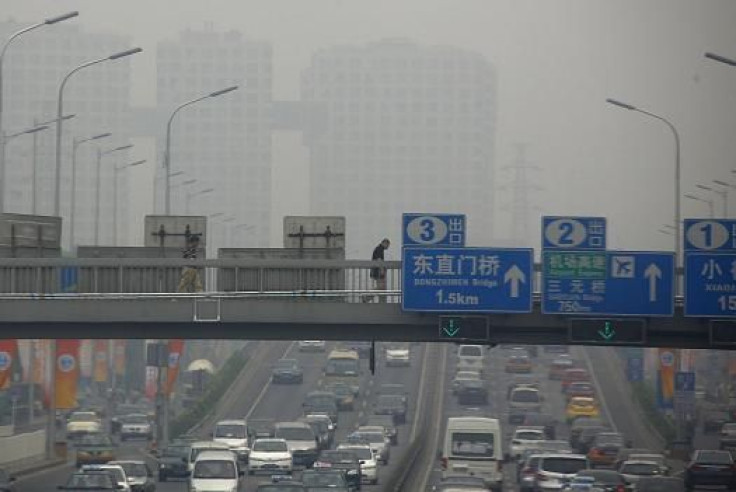In A First For China, Government Announces Plans for Sustainability

Since China's economic growth and development began in earnest in the 1990s, many improvements have been made to the livelihoods of the Chinese. But one big casualty of breakneck development has been the environment, and the citizenry has repeatedly shown it is unhappy with that particular cost of economic growth.
As a result, for the first time in the nation's history, the ruling Communist party has taken official notice and put out a policy draft, now being discussed at the 18th Communist Party Congress. And that's how "sustainable development of the Chinese nation" appeared as a report in the Communist Party of China's (CPC) National Congress official documents.
According to NetEase, a Chinese news blog, the report, put forward by outgoing President Hu Jintao, included three development concepts in efforts to build China's sustainability. The concepts are to improve green initiatives; build a recycling system; and to encourage low-carbon development.
The report quoted one Shanxi Province farmer, Yu Xiaolan, who has implemented green practices in her farming, as being very pleased with the outlook of a greener future for the rest of China.
"I am very happy! In our county, the green concept has long been popular," she said.
Hu Jintao's report detailed ways to optimize land and space development while increasing efforts to conserve resources, and preserve natural ecosystems with environmental protection efforts.
This new environmentally conscious direction that China is starting to take cannot come soon enough. New, Western-like consumption patterns in the 1.3 billion-strong nation are taking a toll on China's --and the world's -- resources. Economists and environmentalists in China and overseas are sounding the alarm: if China continues its blistering economic growth, in a few years its food, energy and water supplies may be strained to crisis level. Additionally, air and water pollution in big cities like Beijing and Shanghai is reaching a critical level.
Though this may be the first time the government has taken an official stance, the good news is that some citizens already have a head start.
Megan Wang, 21, is the daughter of Pei Ming and Julie Upton-Wang, partners of The Schoolhouse, an accredited sustainable hotel and retreat center located outside of Beijing. Megan started working at The Schoolhouse at 16, where she learned from her parents what it meant to have a green business in China.
The Schoolhouse is managed based on what it calls a "curricula of sustainability". This included guidelines for employees and guests on how to live off the land, including organic farming, energy efficiency, saving water, and hiring locally.
The Schoolhouse says it has a specific mission: to create a business that encompasses the growth of China with sustainability.
Jim Spear and his wife Liang Tang are also partners of The Schoolhouse. Spear used his training in energy-efficient architecture to develop practices that saved money, but more importantly preserved the land.
Though examples of these kinds of business practices are still few and far between in China, perhaps plans of a greener future set in place by the government will help accelerate the spread of a new, sustainable, developmental model.
© Copyright IBTimes 2024. All rights reserved.












